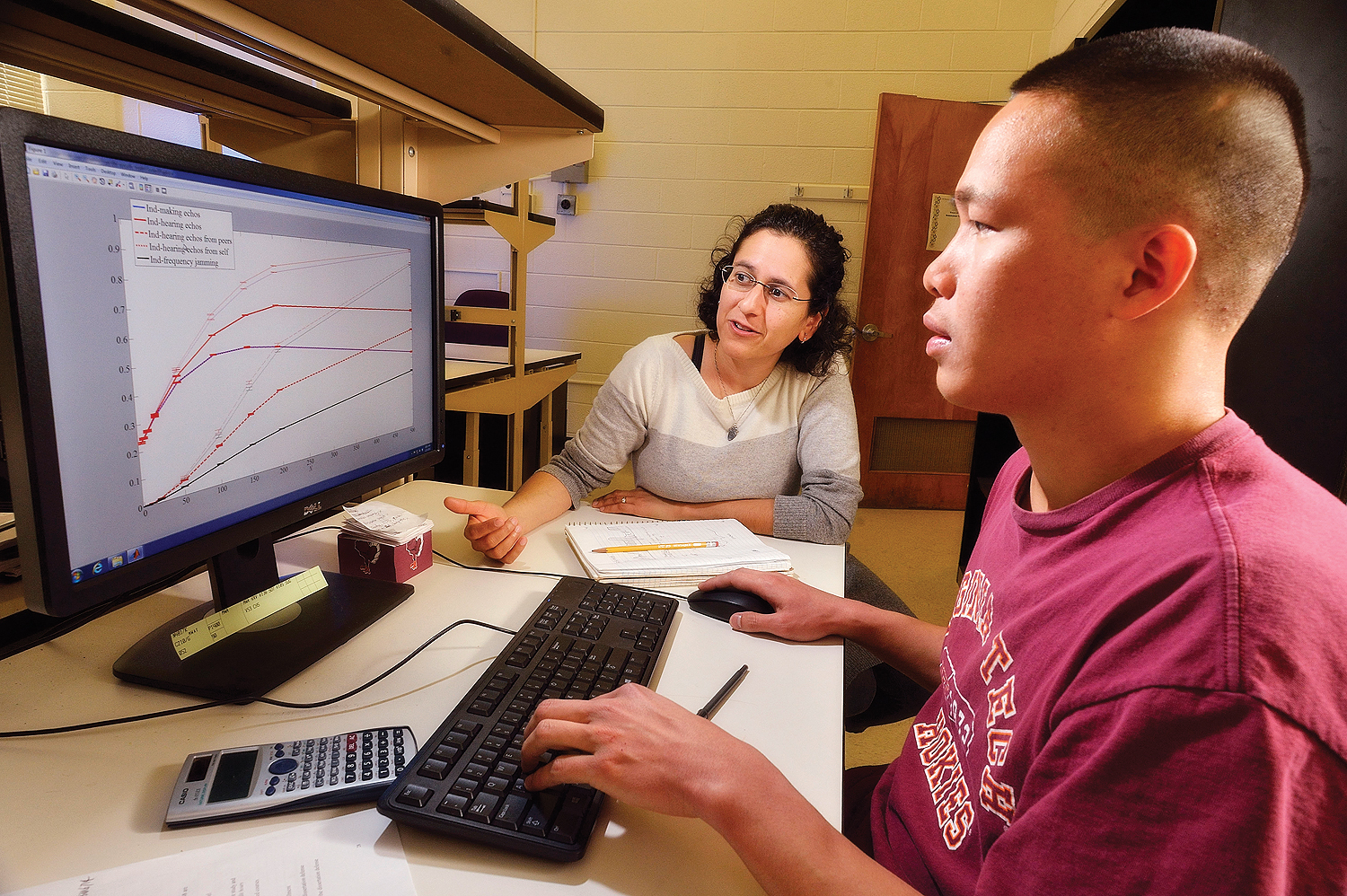College of Engineering forms Department of Biomedical Engineering and Mechanics

Virginia Tech's College of Engineering has launched a new engineering department formed through the merger of its Department of Engineering Science and Mechanics and the Department of Biomedical Engineering.
With input from faculty and staff from both departments, the new unit will be named the Department of Biomedical Engineering and Mechanics, reflecting the lineage of both programs.
Currently, the biomedical engineering faculty members play a leading role in the Virginia Tech -- Wake Forest University School of Biomedical Engineering and Sciences that also involves the Virginia-Maryland College of Veterinary Medicine and the Wake Forest School of Medicine.
"Engineering science and mechanics has a long and rich history of success in newly-emerging research fields, said Richard C. Benson, dean of the College of Engineering and the Paul and Dorothea Torgersen Chair.
Stefan Duma, who currently heads both the biomedical engineering program and the school, will lead the newly-merged department.
Duma holds the Harry C. Wyatt Professorship, and is world renowned for his research in injury biomechanics.
A motivating factor for this merger is that this partnership will enhance Virginia Tech's ability to offer a new Bachelor of Science Degree program in biomedical engineering.
By combining elements of the fundamentals of mechanics with biomedical applications, the new degree will be a first-of-its-kind program that will position students for future industry or graduate education possibilities in the rapidly growing biomedical fields.
"I see many advantages to this merger," said Benson. "The combination of the fundamental mechanics of engineering science and mechanics with the growing applications of biomedical engineering will provide unlimited opportunities as global research efforts focus on biomedical applications.
"I greatly appreciate the advice and visionary thinking that has come my way from faculty, staff, students, and alumni as I have sought a course that will maintain Virginia Tech's historic strength in engineering mechanics and in engineering science," Benson added.
The faculty members in these two departments also have significant engagement with Virginia Tech's Institute for Critical Technology and Applied Science, the Virginia Tech-Carilion Research Institute, the Virginia Tech-Carilion School of Medicine, the Virginia Tech Transportation Institute, the Virginia Bioinformatics Institute, and the Via College of Osteopathic Medicine.
No changes in curricula will result due to this merger, and the engineering science and mechanics branch of the new department will continue with its long-standing responsibility for the sophomore-year mechanics courses in the College of Engineering.




